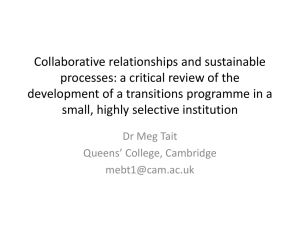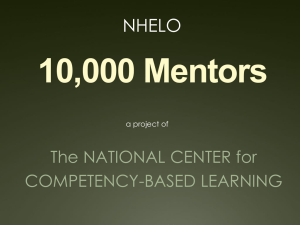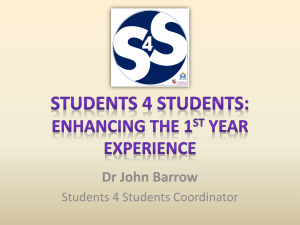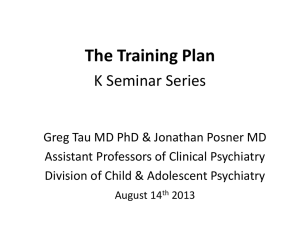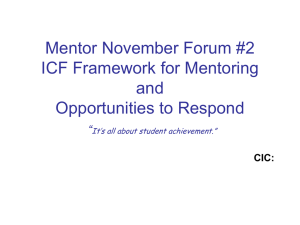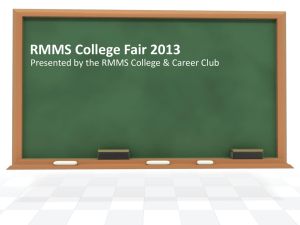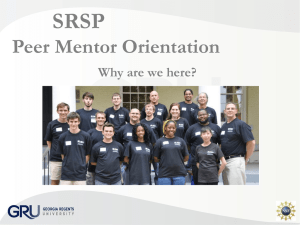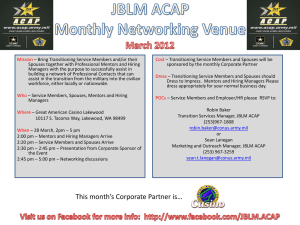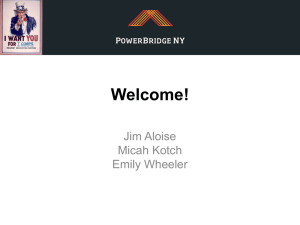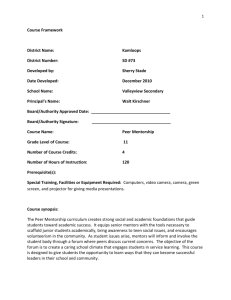Applying for an NIH K01: Early Career Grant Opportunity Workshop
advertisement
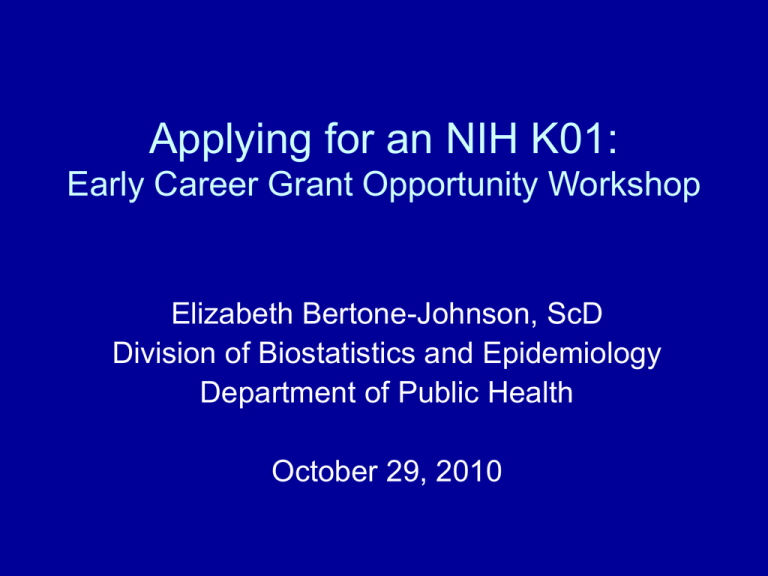
Applying for an NIH K01: Early Career Grant Opportunity Workshop Elizabeth Bertone-Johnson, ScD Division of Biostatistics and Epidemiology Department of Public Health October 29, 2010 Outline • K01 Mechanism & Deciding to Apply • Important Component of the Application • Review and Resubmission The NIH K01 Mechanism • Mentored career development awards intended to provide “support and ‘protected time’ (three, four, or five years) for an intensive, supervised career development experience in the biomedical, behavioral, or clinical sciences leading to research independence” • Require commitment of ≥ 75% (9 personmonths) of calendar year effort • Level of funding varies by Institute – Salary capped at $50,000 to $120,000 per year – $20,000 to $50,000 per year for training activities and research project The NIH K01 Mechanism • Offered by many but not all Institutes – Some have specific focuses – Some have diversity supplements • Eligibility varies by Institute • Success rates generally higher than for other mechanisms (e.g., R01) – 2008: 172 funded of 443 submitted (38.8%) – 2009: 144 funded of 395 submitted (36.5%) • K Kiosk: http://grants.nih.gov/training/careerdevelopmentawards.htm Application Structure • Candidate information and career development plan – Candidate’s background, career objectives, training plan, responsible conduct of research • Research plan – Follow NIH application format (Specific Aims & Research Strategy) • Statements of support (all mentors/consultants) • Environment and Institutional Commitment – Description of institutional environment, commitment to candidate’s research development • 3 – 5 letters of reference (not mentors) • Budget for entire award period (modular) 12 pages Deciding to Apply • Talk with Program Official from target Institute – Make sure your research is compatible with their funding priorities • Some POs will review specific aims and make suggestions • Consider submitting to primary and secondary institutes Important Components • • • • • Justification of need for award Mentorship team Institutional support Training Plan Research Project Justification • Important to be clear about need for mentorship and protected time – New area of research? – New methodology for research in established area? • Argument should strike a balance between previous success and need for training Mentorship Team • Must identify mentor(s) to supervise training activities and research project – More than 1 is acceptable if project is multidisciplinary – From home institution = good, but not mandatory – Good if relationship with them is already established • Mentors must be willing to donate substantial time to you – Specify their level of contact and commitment in the application – No salary support for mentors • Can also include consultants to provide training in specific minor areas Ex: Mentors and Consultants Areas of Expertise Endo Neuro endo Mental Health PMS/ PMDD Genetic Epi X X Vitamin D Nut Epi Gyn Epi X X X X Biostat Sponsor/Co-sponsors JoAnn Manson X Nancy Forger * X Sally Powers * X X Consultants Sue Hankinson X Susan Johnson Alayne Ronnenberg * X X X Walter Willett X Andrea Foulkes * X Bruce Hollis * UMASS X X X X X X X X Institutional Support • Institutional official must guarantee your protected time for research – Letter of support from department chair and/or dean specifying: • you’ll have ≥75% effort for research • your teaching and service expectations • how teaching needs will be covered • If mentors or research are based at another institution this may be especially important Training Plan • Probably more important than research project • Very specific plan for getting additional training you need • Sample types of training activities: coursework, short courses, workshops, professional meetings, “supervised reading”, clinical study • Include timeline showing what you’ll do each year and how you’ll transition to independence – Can include time for R01 writing Ex: Timeline of Training Plan Year 1 Year 2 Year 3 Year 4 Year 5 75% 75% 75% 75% 75% Graduate coursework 20% 20% 20% Short courses/workshops 5% 5% 5% 2.5% Seminars/Colloquia 2.5% 2.5% 2.5% 2.5% 2.5% Professional Meetings 2.5% 2.5% 2.5% 2.5% 2.5% Supervised Reading 10% 10% 5% 5% 5% Clinical observations of patients 5% Research Project 35% 40% 45% 50% 60% 10% 5% All training activities Preparation of R01 application(s) Teaching 20% 20% 20% 20% 20% Service 5% 5% 5% 5% 5% Research Project • Gives applied focus to your training – Incorporate new skills & knowledge gained from mentors and training activities • Be somewhat conservative about scope of project Review (and Resubmission) • Consult with a variety of people on your specific aims – Make sure aims are clear to colleagues who don’t work directly in your area • Get help with writing – professional grant writer • Look at successful applications Review (and Resubmission) • When you receive summary statement, talk with your PO • Be responsive to reviewers • Get multiple perspectives on introduction and revised grant Questions? ebertone@schoolph.umass.edu 577-1672

